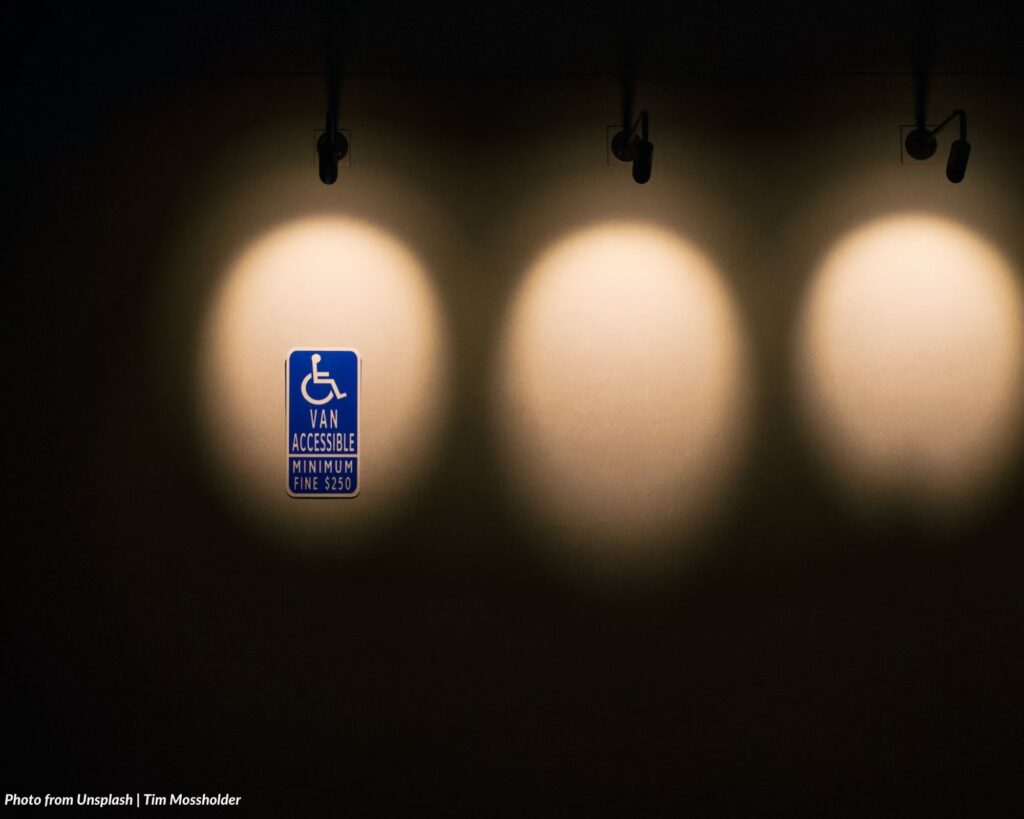
Photo from Unsplash | Tim Mossholder
The following post does not create a lawyer-client relationship between Alburo Alburo and Associates Law Offices (or any of its lawyers) and the reader. It is still best for you to engage the services of a lawyer or you may directly contact and consult Alburo Alburo and Associates Law Offices to address your specific legal concerns, if there is any.
Also, the matters contained in the following were written in accordance with the law, rules, and jurisprudence prevailing at the time of writing and posting, and do not include any future developments on the subject matter under discussion.
AT A GLANCE:
Disabled persons have the same rights as other people to take their proper place in society. They should be able to live freely and as independently as possible. This must be the concern of everyone – the family, community and all government and nongovernment organizations. Disabled persons’ rights must never be perceived as welfare services by the Government. (Section 2[c], Magna Carta for Disabled Persons)
Who are Disabled Persons?
Disabled Persons are those suffering from restriction or different abilities, as a result of a mental, physical, or sensory impairment, to perform an activity in the manner or within the range considered normal for a human being. (Section 4[a], Magna Carta for Disabled Persons)
Impairment vis-à-vis Disability vis-à-vis Handicap
Impairment is any loss, diminution or aberration of psychological, physiological, or anatomical structure or function; Disability shall mean 1) a physical or mental impairment that substantially limits one or more psychological, physiological or anatomical function of an individual or activities of such individual; 2) a record of such an impairment; or 3) being regarded as having such an impairment; Handicap refers to a disadvantage for a given individual, resulting from an impairment of a disability, that limits or prevents the function or activity, that is considered normal given the age and sex of the individual. (Sections 4[b][c][d], Magna Carta for Disabled Persons)
Rights of Disabled Persons
- Right to Employment
- Equal Opportunity for Employment
Disabled persons have the right to suitable employment with equal terms and conditions as able-bodied individuals.
Five percent of certain government positions are reserved for disabled persons.
- Sheltered Employment
If open employment is not viable, the state will provide sheltered employment, considering individual qualities and goals.
- Apprenticeship
Disabled persons can be apprentices, provided their handicap doesn’t impede job performance.
- Vocational Rehabilitation
The state will provide vocational rehabilitation to develop skills for gainful employment.
- Vocational Guidance and Counseling
Vocational guidance and counseling services will be available to disabled persons.
- Right to Education
- Access to Quality Education
Disabled persons have the right to quality education without discrimination.
- Assistance to Disabled Students
Financial assistance programs are provided for economically marginalized disabled students pursuing higher education.
- Special Education
The state will establish and support a system of special education for various types of exceptional children.
- Vocation or Technical and other Training Programs
Disabled persons will receive training in various skills, including vocational efficiency and sports.
- Non-Formal Education
Non-formal education programs will be developed for the total development of disabled persons.
- State Universities and Colleges
State universities and colleges will be responsible for various programs benefiting disabled persons.
- Right to Health
- National Health Program
The Department of Health will implement a national health program focusing on prevention, early diagnosis, and rehabilitation of disabilities.
- Rehabilitation Centers
Medical rehabilitation centers will be established in government provincial hospitals.
- Health Services
Essential health services will be made available and affordable for disabled persons.
- Right to Auxiliary Services
Marginalized disabled persons will receive auxiliary services to restore their social functioning.
- Right to Telecommunications
- Broadcast Media
Television stations will provide sign-language inset or subtitles in newscast programs.
- Telephone Services
Telephone companies will provide special devices for the hearing-impaired.
- Free Postal Charges for Disabled
Certain postal charges will be free for disabled persons for personal purposes.
- Right to Accessibility
- Barrier-Free Environment
The state will ensure access for disabled persons in public and private buildings.
- Mobility
Disabled persons will be allowed to drive, subject to relevant rules and adaptations.
- Access to Public Transport Facilities
Programs will assist marginalized disabled persons in using public transport.
- Political and Civil Rights
- System of Voting
Disabled persons may be assisted in voting, with specific procedures to be followed.
- Right to Assemble
Disabled persons have the right to participate in public gatherings.
- Right to Organize
Disabled persons have the right to form organizations for their welfare, with assistance from the government. These organizations will also be involved in various programs and projects.
Read also: Expanded benefits and privileges of persons with disability
Alburo Alburo and Associates Law Offices specializes in business law and labor law consulting. For inquiries regarding taxation and taxpayer’s remedies, you may reach us at info@alburolaw.com, or dial us at (02)7745-4391/0917-5772207.
All rights reserved.


